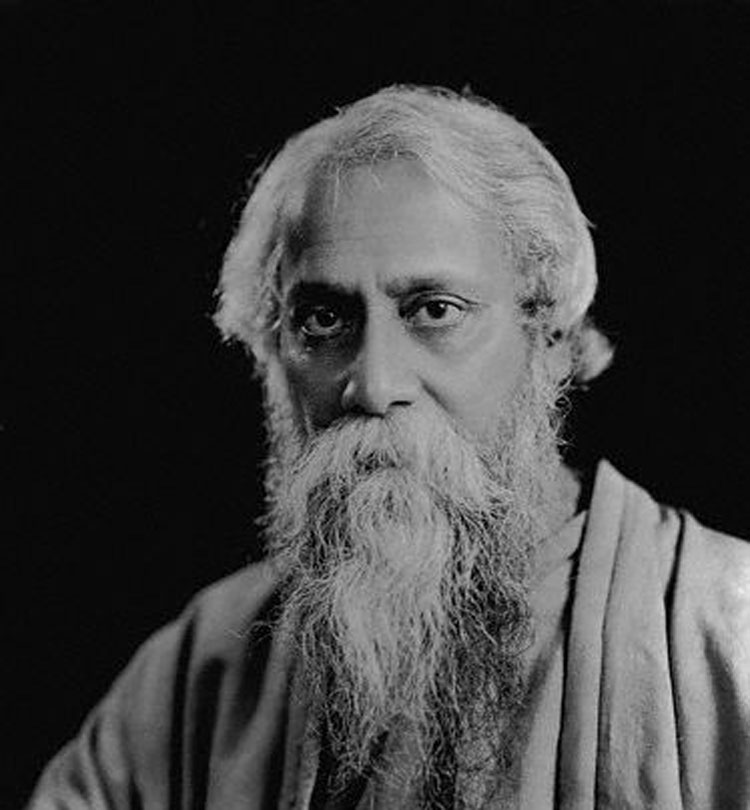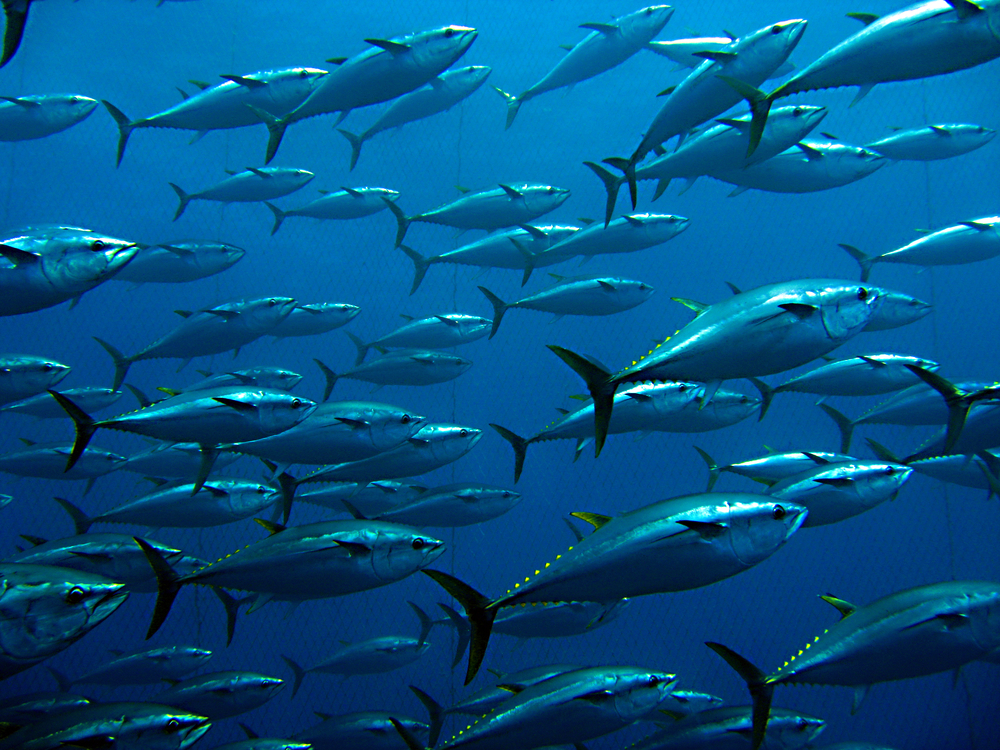Sir — It was deeply heartening to read about the group of fishermen who caught a huge bluefin tuna off the shore of Ireland and then released it into the waters again. It is true that they are a part of a catch-and-release programme, but the fish is a delicacy in Japan and would have been worth millions of pounds. The anglers set it free for the sake of furthering scientific research. In stark contrast is the disregard among a section of Indians for the rapidly dwindling populations of the hilsa — since ilish is a delicacy, people care more about having it on their plates than about ensuring that it does not go extinct.
Rohini Bhaumik,
Calcutta

Rabindranath Tagore had proclaimed that nationalism is “a great menace” (Wikimedia Commons)
Radical vision
Sir — Sukanta Chaudhuri’s brilliant, satirical article, “Tagore the traitor” (Sept 23), demolishes the nationalistic narrative that political leaders today are constructing in order to promote jingoism and xenophobia among ordinary citizens and even intellectuals. The accompanying visual — a painting of Rabindranath Tagore by his nephew, Abanindranath, depicting the bard as a mercurial baul — reinforces Chaudhuri’s view of Tagore as the iconoclastic seer-poet whose vision is still relevant in contemporary India.
Tagore had proclaimed that nationalism is “a great menace”. It is also important now to recall his last speech, which he wrote at a time when the Second World War was going on. It contained these prophetic words: “As I look around I see the crumbling ruins of a proud civilization strewn like a vast heap of futility. Yet I shall not commit the grievous sin of losing faith in Man.”
Laksmisree Banerjee,
Jamshedpur
Sir — What follows after the shocker of a title, “Tagore the traitor”, is a biting satire on the thought processes of the proponents of ‘New India’. Sukanta Chaudhuri shows how Tagore would have indeed been branded a “traitor” in the Hindutva scheme of things. One hopes that the article will create some discomfort among those in the Bengali community who have started readily believing the falsehoods peddled by the right-wing. After all, the ideas propagated by Hindutvavadis go directly against the traditions and philosophies espoused by luminaries from the community such as Tagore, Raja Ram Mohan Roy, Ishwarchandra Vidyasagar, Swami Vivekananda, Ramakrishna Paramhansa and Subhas Chandra Bose. Will there come a day when these figures are all branded ‘traitors’? Or perhaps their words and actions will be given a clever spin, or fake statements shall be attributed to them, in order to suit a particular ideology.
Vidyasagar, for example, would certainly not fit in ‘New India’. Unfortunately, there hardly seems to be any effective resistance to the emergence of this new order, with a weakened Opposition fighting to stay alive.
Pronoy Kumar Ghosh,
Jamshedpur
Sir — Sukanta Chadhuri’s article made me wonder about the fate that would likely befall Rabindranath Tagore and the eponymous character of his novel, Gora, in these times of hypernationalism. Perhaps the Hindutvavadi Gora’s realization that he belongs to no religion — especially not the one he thought he belonged to — would have resulted in him being sent to a detention camp, even if he had valid identification papers. And what would happen to his creator? In Tagore’s case, there are several possibilities; for one, he could be put under house arrest for his views. The ‘one nation, one religion, one flag’ brand of nationalism that is rapidly gaining ground has no room for Tagore’s widely-acclaimed vision of inclusion.
Goutam Kumar Jana,
Calcutta
Sir — In ‘New India’, Rabindranath Tagore would indeed be an “anti-national”. Would his words, “I will never allow patriotism to triumph over humanity”, ever be accepted in these times of zealous patriotism? Through his poem, “Bharat tirtha”, Tagore dared to welcome people from all over the world to India so that different cultures could mingle and make the country richer. In present-day India, where people are detained for the purposes of the National Register of Citizens, Tagore’s ideas would never be welcome.
Through his novel, Ghare Baire, Tagore also highlighted the enormous losses that small traders incurred as a result of the swadeshi movement, as they were forced to burn their stocks of British goods. He warned against the spectre of communalism, as the small traders suffering on account of the movement were predominantly Muslim. Perhaps, in New India, his criticism of the swadeshi andolan would make him “anti-national”. Moreover, he wrote extensively about transcending the barriers of religion, race, nationality and caste. Such ideas have no place in a nation where a particular religious community is being projected as supreme. He spoke out against hate; would he find any takers in New India, where the politics of hate is awarded social sanction? He renounced his knighthood to protest against the Jallianwala Bagh massacre and earned the wrath of the British, and yet he was called a ‘stooge’ of the Empire for his alleged ‘praise’ of King George V in the Indian national anthem. The bard — who condemned nationalism, welcomed everyone to India, spoke in favour of the poor, protested against communalism and casteism and advocated equality — is certainly not fit to be lauded in ‘New India’.
Kajal Chatterjee,
Calcutta










